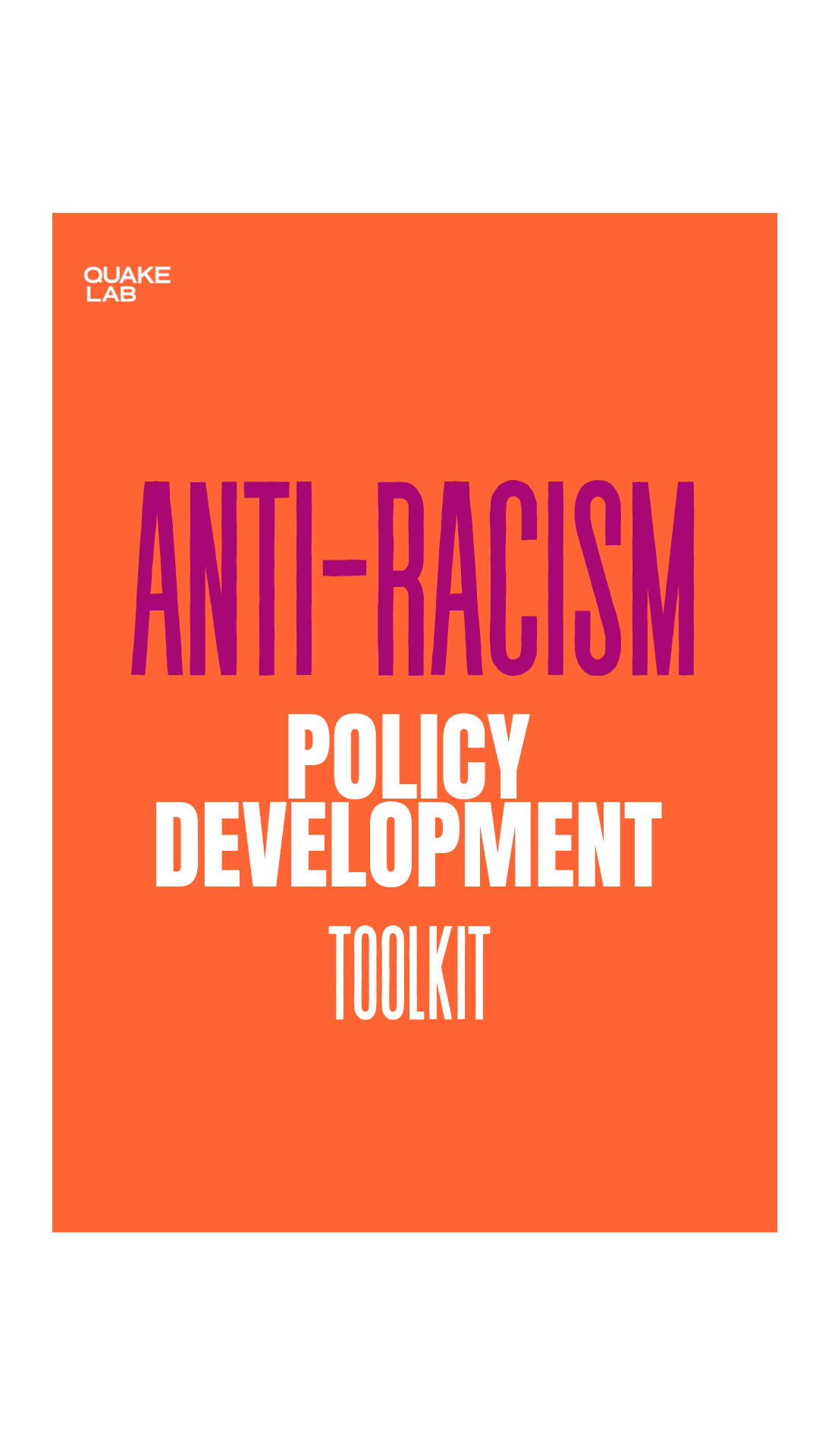With the new IRCC requirement that all service providers must have an anti-racism policy in place by April 1, 2025, many organizations are scrambling to meet compliance without the resources to meaningfully embed equity into their work.
At QuakeLab, we initially planned to charge for this toolkit—but after reflecting on the values we uphold, we realized that would be disingenuous to the work we’ve done so far. Instead, we’re making this toolkit free for settlement organizations so they can meet funding requirements without diverting critical resources away from service delivery.
This step-by-step guide is designed to simplify policy development, ensuring organizations can craft an anti-racism policy that goes beyond performative statements and works toward systemic equity. The toolkit includes:
✅ A structured policy template to meet IRCC requirements
✅ Checklists and tools for integrating a GBA+ (Gender-Based Analysis Plus) lens
✅ Practical steps to move from compliance to real action
✅ Monitoring and accountability guides to ensure the policy is meaningful and sustainable
We’d like to think of this as a means to an end: we provide this toolkit for free, and in return, we ask organizations that have the resources to work with us on deeper, transformative policy redesign. Equity work isn’t just about writing policies—it’s about investigating, redesigning, and embedding equity into every part of an organization’s operations.
📢 If your organization is ready to do the deeper work, let’s talk! Contact us at hello@quakelab.ca
Let’s build policies that work.

